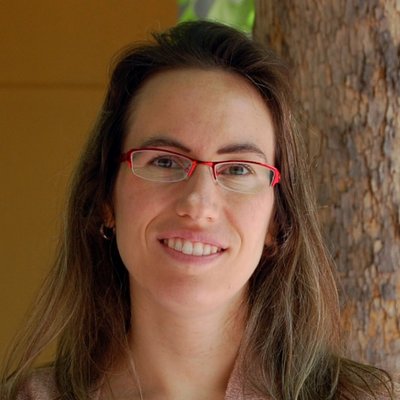Call for participation: Off the Beaten Track 2016
We’re gearing up for the 2016 Off the Beaten Track workshop, co-located with POPL in St. Petersburg, Florida next month. If you’ve never been to OBT, it’s a fun and informal workshop that provides a forum for discussion of programming languages research topics that don’t get much play in mainstream PL venues like POPL.
The program committee selected nine talk proposals from a pool of strong submissions. We’ll hear about computer-aided strategic reasoning, languages for machine knitting, and lots more.
Also, as announced back in October, the workshop will feature keynote talks from Chris Martens and Bob Atkey. I’m excited to now be able to share the titles and abstracts for those two talks! Chris, who received her Ph.D. from CMU in September and has now started a postdoc at UC Santa Cruz, is giving a talk entitled “Operationalizing Creative Theories”:
Hypothetical reasoning is one of the best interdisciplinary tools we have for growing human knowledge, as it exercises imagination and empathy while yielding powerful abstractions. Operationalizing hypothetical reasoning (via programming languages) can therefore be used fruitfully in creative, imaginative activities. Conversely, pre-digital techniques for adding spontaneity and serendipity into creative work, based on collaborative play, have inspired digital interfaces and might be fruitfully extended to programming languages. I will illustrate how hypothetical reasoning and collaborative play pair well together as guiding principles, and using them, I will describe a unified design space of computational artifacts for programming, proving, storytelling, playing, and generating computational artifacts.
And Bob, a lecturer in the Computer and Information Sciences department at the University of Strathclyde, will be giving a talk on “Generalising Abstraction”:
A good abstraction or two can be invaluable for programming, enabling reasoning, performance, and maintainability. We build abstractions by erecting barriers to the flow of information between implementations and their clients.
John Reynolds’ theory of relational parametricity seeks to explain abstraction in terms of invariance under change. Reynolds’ original theory explains abstract types by modelling change of representation types by mathematical relations. In essence, we have successfully maintained a barrier to information flow if the program is invariant under all changes of representation that act identically given the information they are permitted to have.
In this talk, I’ll present some ways of generalising Reynolds’ theory to novel applications by considering alternative notions of change. Change in space and time yields applications to geometry and classical mechanics. Considering changes as distances affords quantitative accounting of information flow. Indexed and dependent types allow programmers more precision in describing changes and so more precision is defining abstractions.
I hope you’ll be able to join us at OBT next month. As usual, the workshop will run all day on the day after the main POPL conference, on January 23rd. Like POPL, OBT will operate under the SIGPLAN anti-harassment policy. Registration is via the POPL registration process and, if you register by January 5, costs $150 for ACM members, $160 for non-members, and $125 for students. I look forward to seeing you there!

Comments